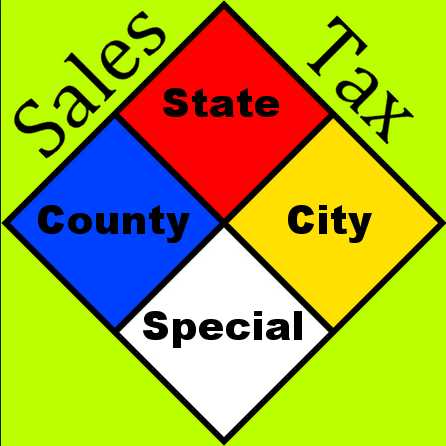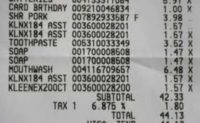Many new entrepreneurs are confused when it comes to sales taxes. Whether you’re setting up a brick-and-mortar store, running a mobile business, or selling on the Internet, navigating sales tax requirements can be daunting. Sales tax was originally designed for traditional businesses with physical locations, but as business models evolve, so do the complexities around sales tax collection.

At its core, a sales tax license gives you authorization to act as an agent for a specific taxing jurisdiction to collect their sales tax. It’s important to note that sales tax isn’t something businesses themselves pay—rather, they collect it on behalf of the government jurisdiction such as a state, county, or city. To help shed light on how to collect sales tax correctly, here are seven key rules every entrepreneur should understand, along with some insights into current legislation and best practices.
Rule 1: The Business Does Not Pay Sales Tax
One of the most common misconceptions is that businesses themselves pay sales tax. In reality, businesses act as intermediaries, collecting sales tax from their customers and passing it on to the relevant taxing authorities. You are merely the agent collecting the tax on behalf of a government jurisdiction. When you collect sales tax, it is not your money. It is money held in trust for the jurisdiction, and failure to remit these taxes can lead to significant penalties.
Failing to pay collected taxes can result in a business being held personally liable. It’s vital for business owners to understand that sales tax collection and remittance are not optional but mandatory duties.
If you fail to collect sales taxes when required, the consequences can be severe, depending on the jurisdiction. Each state has its own tax laws and penalties, but in general, failure to collect or remit sales tax can result in a range of penalties and liabilities. In most states, business owners, officers, and sometimes even employees responsible for financial decisions can be held personally liable for uncollected or unpaid sales taxes. This means that even if the business closes, the state can pursue the individual(s) responsible for collecting sales taxes and seizing their personal assets if necessary.
Rule 2: Sales Tax Is Typically Imposed on Tangible Products
In general, sales tax is imposed on the sale of physical goods. However, as the economy has shifted toward more service-based industries, some states have expanded their sales tax base to include certain services. However, not all services are taxed, and the types of services that are taxable can differ greatly between states.
For example, Hawaii imposes a General Excise Tax (GET) on most goods and services, including professional services like consulting, legal services, and healthcare. Similarly, states such as New Mexico, South Dakota, Washington, West Virginia, Texas, Connecticut, Florida, New York, and Minnesota also apply sales tax to certain services. As an entrepreneur, it’s crucial to understand the specific rules regarding taxable services in each state where you conduct business.
You should also be aware that digital products, such as downloadable music, software, or e-books, may or may not be subject to sales tax, depending on the state. As digital commerce continues to grow, more states are enacting laws to tax these transactions.
Rule 3: Sales Tax Is Only Imposed on the End Consumer
Sales tax is a consumption tax, which means it is only imposed on the final consumer of a product. For instance, if you’re selling electronic components to a manufacturer who uses them to build a larger product, this transaction is not subject to sales tax. The tax is only imposed when the finished product is sold to the end user.
This concept is important for business-to-business (B2B) transactions. Businesses buying goods for resale can typically present a resale certificate, which exempts them from paying sales tax at the time of purchase. Instead, sales tax will be collected from the final consumer when the goods are resold, often at a higher price. As a seller, it’s important to keep copies of these certificates for your records in case of an audit.
Rule 4: Multiple Taxing Jurisdictions Can Apply
Sales tax collection gets even more complicated when you consider the number of taxing jurisdictions that can apply to a single sale. In addition to state-level taxes, many cities and counties impose their own sales taxes. In some cases, special taxing districts—created to fund specific projects such as public transportation or construction—may also have their own tax rates.
For example, a sale made in Colorado Springs, Colorado, is subject to state, county, city, and special taxing district taxes, including the Regional Transportation District (RTD). The sum of all these taxes creates the total sales tax rate for the customer. As a business owner, it’s your responsibility to ensure that the correct tax rate is applied based on the location the customer takes delivery.
Rule 5: Sales Tax Is Based on Where the Consumer Takes Possession
The location where the customer takes possession of the product plays a crucial role in determining which sales taxes apply. If you operate a physical retail location and customers pick up their purchases in-store, sales tax is straightforward. However, if you offer delivery services or sell products online, things get more complicated.
For mobile or online businesses, sales taxes are applied based on the location where the customer takes possession of the goods, just like with physical goods. This means that if you sell a product online to a customer in a different taxing jurisdiction, you must calculate the sales tax based on the jurisdiction where the product is delivered. This assumes you have a sales tax license for all relevant destination jurisdictions.
As you will see in the next rule, there are thresholds, often based on sales volume or the number of units sold, that determine when you need to obtain a sales tax license for a specific jurisdiction. This is simpler for mobile businesses vs online businesses, as the number of licenses you need is limited to your service area. However, tracking the tax rates across multiple jurisdictions can still be challenging, and tax automation software such as Stripe, Avalara, and TaxJar can help manage these complexities.
Rule 6: South Dakota v. Wayfair Changed the Rules for eCommerce
In June 2018, the U.S. Supreme Court’s ruling in South Dakota v. Wayfair, Inc. drastically changed how sales tax is collected for online businesses. Prior to the ruling, businesses were only required to collect sales tax in states where they had a physical presence, such as a store or warehouse. However, the court’s decision allowed states to require online retailers to collect sales tax even if they don’t have a physical presence in that state.
This ruling opened the door for states to pass economic nexus laws, which require remote sellers to collect sales tax if they exceed a certain threshold. For example, many states now require online retailers to collect sales tax if they make more than $100,000 in sales or 200 transactions in the state. Click on the link for a full list of the economic nexus thresholds by state. If you’re selling online, it’s essential to stay up to date on the sales tax rules in each state where you do business.
When it comes to online businesses, I often recommend that my clients use a marketplace facilitator such as Amazon, eBay, or Etsy, which will handle sales tax collection and remittance on your behalf for a small fee.
Here is what you need to know about collecting sales taxes as an online retailer.
Rule 7: Buyers Are Responsible for Uncollected Sales Tax
Many people don’t realize that if a seller doesn’t collect the required sales tax because they haven’t met the threshold to obtain a sales tax license for certain jurisdictions, the tax isn’t waived. Instead, the responsibility shifts to the buyer. This is called “use tax,” and it applies to all purchases where the seller didn’t collect sales tax for specific jurisdictions. For example, if a customer buys a product online and the seller collects sales tax for the state but not for local jurisdictions, the customer is likely still legally obligated to pay the use tax to those local taxing authorities where the sales tax wasn’t collected.
Although many consumers and businesses are unaware of this responsibility, states are becoming more aggressive in enforcing use tax collection. Some states require businesses to report out-of-state purchases on their tax returns, and failure to pay use tax so can result in penalties.
Conclusion
Sales tax may seem like a confusing and intimidating subject for new entrepreneurs, but understanding the basics can help you navigate the complexities more confidently. Remember that as a business owner, you’re acting as a tax collector for government jurisdictions. Whether you’re selling physical products, services, or operating online, knowing when and how to collect sales tax is crucial for staying compliant and avoiding penalties.
As you grow your business, staying informed about changing sales tax laws—such as the 2018 Wayfair decision—is critical. Resources like the Tax Foundation and state tax agencies can provide updated information to ensure you’re compliant in all your sales.
Are you handling Sales Taxes properly?












